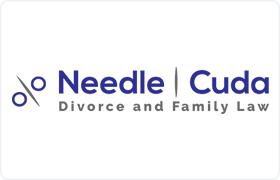 Broad Brook Family Law Lawyers, Connecticut
Broad Brook Family Law Lawyers, Connecticut
Sponsored Law Firm
-
 x
x

Click For More Info:
-
Needle | Cuda: Divorce & Family Law
830 Post Road East Suite 301 Westport, CT 06880» view mapDivorce & Family Law Experienced. Savvy. Straightforward.
At Needle | Cuda, we know when you come to see us that you may be going through the most difficult time of your life. That is why we style ourselves a “high touch” law firm.
203-557-9500
Includes: Collaborative Law, Domestic Violence & Neglect, Paternity, Prenuptial Agreements
Lawyers
1-9 of 9 matches
Eminent Domain, Wills & Probate, Family Law, Constitutional Law
Family Law, Child Support, Administrative Law, Adoption, Employment
Family Law, Wills & Probate, Child Support, Estate Planning
Civil Rights, Family Law, Trusts, Construction, Land Use & Zoning
Family Law, Divorce, Divorce & Family Law, Personal Injury
Litigation, Federal Appellate Practice, Family Law, Divorce & Family Law, Personal Injury



 Melissa Needle Westport, CT
Melissa Needle Westport, CT Practice AreasExpertise
Practice AreasExpertise